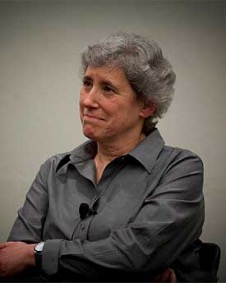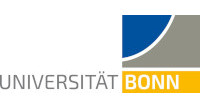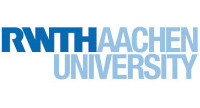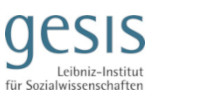Autonomy in the Digital Age:
Rethinking Relationships between
Humans, Technology and Society
An international Conference of the Research Group
“Autonomy and autonomous Systems”
of the Universities Bonn & RWTH Aachen
20th – 22nd of November 2022
University of Bonn/Germany (and online)
Call for Papers
Autonomy, originally a core concept of the Enlightenment epitomizing aspirations of modernity, has become one of the central and particularly high-profile concepts in debates on digital transformations.
The discourse figures of this debate mostly comprise a polarizing perspective that oscillates between the restrictive or dangerously uncontrollable effect of digital technologies, such as facial recognition, surveillance or 'autonomous weapons' and the liberating, autonomy-enhancing function ('smart home', 'assisted living'). Contexts of application include e.g. administration, military and police, social and health-related services, medicine and education, and not to forget, the digital economy with its diverse challenges regarding the future of work. Today, in times of digitalization, datafication, and an increasing influx of artificial intelligence into many sectors of society, the concept of autonomy needs re-definition and reflection under contemporary technological conditions.
Our starting point for the reflections on understanding of autonomy in the digital age is a conceptual sensitivity that asserts the possibility of autonomy for both personal-subjective and collective-social relations. On both levels, conditions for autonomy are subject to rapid change. Outlining the distinction between autonomous and automatic systems, different degrees of autonomy can be distinguished - from weak forms, in which it is a matter of gradual absence of external control, to strong forms, in which the respective 'autonomous' entity is able to set its own laws (rules).
With the development of Artificial Intelligence (AI) systems and the increasing use of robots in everyday life technological transformations have come along with social changes and new conflicts. Questions of privacy and data use, the future of work or the subsequent dawn of a 'post-capitalist' society, as well as the discussions about the consequences of autonomously acting combat robots and the ethical regulation of warfare are just a few examples of the present challenges and those still to come. Meanwhile, discourses of technological autonomy address an array of issues concerning the future of democracy. Global digital dependencies, the delegation of authoritative power and the rise of global platform companies challenge the political autonomy of democratic states and their technological sovereignty. On a cultural level, the integration of autonomous systems into society launches a discussion about a technologically induced crisis of humanist values and question the ideals of the enlightenment for today’s socio-technical practices. Studies related to trans- or posthumanism construe technologies as an opportunity to improve or even overcome the human condition. Visions of human enhancement, virtuality, cyborg-societies mingling with autonomous machines and artificial superintelligence might sound utopian today, but perhaps not anymore tomorrow. The reasoning in both optimistic assumption and skeptical anticipation illustrates the urgency of re-defining not just our idea of personal autonomy within the digital, and datafied society but also the need to theorize and analyze new forms of autonomy to understand the next phase of digital society. Interdisciplinary research on the concept of autonomy is needed in order to substantiate our normative, functional, and epistemic claims on the development of the relationship between humans and technology in the future.
The conference “Autonomy in the Digital Age: Rethinking Relationships between Humans, Technology, and Society” aims to encourage a conversation among all disciplines interested in issues concerning ‘Autonomy and Technology’, allowing for diverse and interdisciplinary perspectives. We intend to explore the significance of autonomous living in our digital societies, to question the humanist concept of autonomy itself in our technological reality and to analyse the implications of our interaction with (semi)autonomous systems.
Submissions from all social sciences, humanities and technology disciplines related to the following topics and questions are highly welcomed, but do not need to be limited to these:
Section 1: Theoretical approaches & interdisciplinary perspectives:
How are digital data practices in public and private life enabling or hindering informational self-determination? How do we reconfigure notions like privacy and surveillance? How will the growing influence of autonomous systems affect social structures, political systems, labour and governmental control measures?
Section 2: Contexts:
How are (emerging) modes of (technical) autonomy and agency reshaping societies and personal life-worlds? Which different puzzles of “autonomy” emerge in practical contexts and fields from art, medicine and political institutions? Are we as a digital society at the beginning of a cultural opposition of humanism and technicity? How can cultural and systemic differences in technology policy be reflected and specified on the basis of the innovation of autonomous systems?
Section 3: Norms and ethics:
Which (post-Eurocentric) epistemologies and vocabularies question/enrich the debates about “autonomy” and Humanism in the new digital reality? Are agens/patiens ethics suitable as a theoretical framework for ascribing moral status (person and actor status) to autonomous systems? Should autonomy be understood as an intrinsic quality or as an effect in a relationship characterized by power relations? What normative requirements must autonomous systems and infrastructures meet in an ethically engaged digital society?
Section 4: Conversations:
How to conceptualize Human-Machine Interaction and machine-machine interactions in social sciences? Are individualistic or collectivistic designs of the digital society the vanishing point of technical autonomy issues? What is the status of the idea of autonomy in a digital society in which mutually autonomous interactions between humans and technology have become a reality?
Section 5: Systems and machines:
What degree of autonomy do we ascribe to robots? What synergies arise from the collaboration between humans and autonomous systems in different contexts? What role do autonomous robots play in hybrid decision-making-processes? Can autonomous robots be conceptualized as part of an automated process? Which criteria guide the human-centered design of autonomous systems?
Autonomy in the Digital Age: Rethinking Relationships between Humans, Technology and Society
- Konferenz-Abschlussbericht
Die transregionale Forschungsgruppe ‚Autonomie und autonome Systeme‘ hat vom 20. bis 22. November 2022 zur internationalen Konferenz ‚Autonomy in the Digital Age: Rethinking Relationships between Humans, Technology and Society‘ im Universitätsclub Bonn e.V. eingeladen. Gemeinsam mit Forscher*innen aus den USA, Israel, Frankreich, Österreich, Großbritannien, Dänemark und der Türkei und inspiriert durch Keynotes von Karin Knorr Cetina, Abraham Newman und Lucy Suchman diskutierten die Teilnehmerinnen und Teilnehmer die Rekonfiguration der autonomen Denkfigur in der digitalen Gegenwart. In politischen, technischen, philosophischen, sozial- und medienwissenschaftlichen Panels mit insgesamt 22 Beiträgen wurden Technologien wie autonome Waffensysteme, humanoide Roboter, künstliche Intelligenz und digitale Infrastrukturen im offenen und diversen Dialog reflektiert.
Karin Knorr Cetina (Chicago/USA) eröffnete die Konferenz am 20.11.2022 und verdeutlichte mit ihrem grundlegenden Beitrag ‚Epistemic Shifts in the Digital Age: From Loving the Data to Loving Automation‘ in einer theoretischen Auseinandersetzung die entscheidende Rolle automatisierter Datenkulturen bei der digitalen Produktion von Wissen. Die heutzutage künstlich intelligente Wissenschaft wandelt sich bereits zur Wirkungsstätte autonomer Technisierung – eine epistemische Zukunft digitaler Gesellschaften, deren Implikationen noch erforscht und verstanden werden müssen. In der politischen Sphäre sind die Auswirkungen einer solchen Technisierung ökonomischer Infrastrukturen bereits erkennbar. Abraham Newman (Washington/USA) demonstriert in seiner Keynote ‚Europe in a Geo-economic Age: Digital Sovereignty or Digital Dependance‘ an Tag zwei der Konferenz, wie die digitalen Informations-, Finanz- und Produktionsnetzwerke zum vulnerablen Schauplatz politischer Spannungen werden können. Die europäische Außen- und Innenpolitik navigiert sich durch die neu entstehenden technologischen Engpässe, die im geopolitischen Spannungsfeld zwischen den USA, China und Russland zunehmend instrumentalisiert und militarisiert werden.
Neben der staatlichen Autonomie bewirkt das autonome Zeitalter digitaler Technologiepolitik jedoch auch Verschiebungen des individuellen und alltäglichen Selbstverständnisses. Im Panel 1 ‚Autonomy in interdisciplinary Approaches‘ arbeiten Gabriele Gramelsberger (Aachen/Deutschland) und Maximilian Mayer (Bonn/Deutschland) an der phänomenologischen Bedingtheit des Individuums in der digitalen Welt und untersuchen, wie soziotechnische Veränderungen unsere Vorstellung vom demokratischen Subjekt beeinflussen. Bert Heinrichs (Bonn/Deutschland) und Dieter Sturma (Bonn/Deutschland) verdeutlichen anhand einer Gegenüberstellung menschlichen und technischen Symbolverhaltens, dass die Zuschreibung einer Autonomiesemantik den logischen Raum der Gründe adressieren muss und autonome Systeme zu einer Humanisierung der Lebenswelt beitragen können. Aviv Gaon (Herzliya/Israel) und Jens Papenburg (Bonn/Deutschland) weisen anhand konkreter Anwendungsszenarien des autonomen Fahrens und der listening devices auf den sozialen und kulturellen Einfluss eines hybrid geteilten Handlungsraumes zwischen Mensch und autonomer Technik hin. Im politikwissenschaftlichen Panel 2 ‚Democracy, Digitalization, Socio-technical Transformations‘ arbeiten Peter Hägel (Paris/Frankreich), Anne Hoss (Hamburg/Germany), Thomas Bächle (Bonn/Deutschland) und Jascha Bareis (Karlsruhe/Deutschland) auf theoretischer und reflexiver Ebene die soziotechnischen Transformationen des digitalen Gesellschaftsentwurfes heraus. Peter Hägel bemerkt eine Divergenz zwischen volldigitalisierter Alltagserfahrung und dem demokratischen Legislativapparat bei der Lösung von Problemen. Anne Hoss argumentiert für Ivan Illichs Begriff der Konvivialität als Rahmenkonzept für die Untersuchung und Evaluation technischen Fortschritts. Thomas Bächle und Jascha Bareis geben einen diskursanalytischen Beitrag zur politischen Instrumentalisierung von autonomen Waffensystemen. Die Panels 3 ‚Tensions of Multiperspectivity‘ und 4 ‘Hybridization and Companionship’ fokussieren in einer Parallelsession verschiedene Anwendungsszenarien der Robotik und künstlichen Intelligenz. Irina Zakharova (Bremen/Deutschland) diskutiert in ihrem Vortrag automatische und autonome Systeme im digitalen Bildungsapparat und fragt, wie diese datafizierte Bildungspraxis aus feministischer Sicht zu bewerten ist. Lilli Bruckschen (Bonn/Deutschland) vertieft das Thema Bildung weiter und untersucht, wie robotische Systeme bei der Lehre computerwissenschaftlicher Grundlagen die Lernbereitschaft beeinflussen. In einem theoretischen Exkurs schließt Benjamin Peters (Aachen/Deutschland) das Panel 3 mit einer alternativen Genealogie der künstlichen Intelligenz aus der Geschichte der Sovietunion ab.
Ayanda Rogge (Dresden/Deutschland) gibt im Panel 4 eine literaturbasierte Übersicht zum Design-Paradigma der artificial companionship und erläutert die Grundlagen einer resilienten Interaktion zwischen Mensch und Maschine. Caja Thimm (Bonn/Deutschland), Sven Stumm (Aachen/Deutschland) und Sigrid Brell-Cokcan (Aachen/Deutschland) vertiefen in ihrem interdisziplinären Vortrag das Thema des Human-Autonomy Teamings mit einem Beitrag zum Autonomiegrad technischer Assistenzsysteme im Bauwesen, Frank Piller (Aachen/Deutschland) und Kathleen Diener (Aachen/Deutschland) ergänzen in ihrem Vortrag den ökonomischen Anwendungskontext. Sie untersuchen die Arbeitsteilung in Bezug auf Produktdesignprozesse zwischen Mensch und Maschine in hybrid-intelligenten Innovationsteams.
Der zweite Tag der Konferenz wird durch die dritte Keynote, ‚Strategic Autonomies: Some reflections on the politics of autonomous systems‘, abgeschlossen. Lucy Suchman (Lancaster/UK) verdeutlicht in ihrem Vortrag, wie die Science and Technology Studies, beginnend bei Langdon Winner in den 1970er Jahren, Autonomie vom instrinsischen Personenmerkmal zum Effekt spezifischer Diskurse, politischer Ökonomien und materieller Praktiken umdeuten und welche Implikationen diese Umdeutung für den Ruf nach meaningful human control hat.
Tag drei der Konferenz wird durch das Panel 5 ‚Robots between Norms and Control‘ eröffnet. Sigrid Brell-Cokcan und Sven Stumm gehen in ihrem Beitrag erneut auf die Kollaboration von Mensch und Maschine im Bauwesen ein und fokussieren dabei im Besonderen die Kommunikation in dynamischen Umwelten. Christoph Ernst (Bonn/Deutschland) und Ingvild Bode (Odense/Dänemark) beschäftigen sich näher mit autonomen Waffensystemen und stellen einerseits die Bedeutung des human-machine-interfaces bei der Analyse solcher Systeme heraus (Ernst) und betonen zudem die Rolle von Diskurspraktiken bei der Bestimmung von Normativität in der Technikevaluation (Bode).
Im letzten Panel der Konferenz, ‚Medicine and Care‘, wird der medizinische Handlungs- und Entscheidungskontext als Anwendungsszenario näher durch die Beiträge von Kathrin Friedrich (Bonn/Deutschland), Jared Parmer (Aachen/Deutschland) & Hendrik Kempt (Aachen/Deutschland) sowie Maximilian Braun (München/Deutschland) und Svenja Breuer (München/Deutschland) diskutiert. Kathrin Friedrich macht deutlich, wie der menschliche Körper an radiochirurgische Operationsrobotik angepasst wird. Aus ethischer Perspektive zeigt Jared Parmer, wie technische Systeme im medizinischen Kontext den Prozess der autonomen Entscheidungsfindung unterstützen können. Ebenfalls im Fokus auf die Selbstbestimmungsfähigkeit des Menschen fragen Maximilian Braun und Svenja Breuer, inwieweit die personale Autonomievorstellung im Rahmen der robotisch unterstützten geriatrischen Pflege rekonfiguriert werden muss. Aus der Sprecher*innengruppe der Initiative ‚Autonomie und autonome Systeme‘ fassen Gabriele Gramelsberger, Maximilian Mayer und Caja Thimm die vielfältigen Forschungsergebnisse und -perspektiven in einer abschließenden Übersicht zur Konferenz zusammen und betonen das enorme Potenzial interdisziplinärer und internationaler Projektverbünde für die Erforschung autonomer Systeme als technologische Bedingung der digitalen Gegenwart.
Die Forschungsgruppe ‚Autonomie und autonome Systeme‘ bedankt sich bei allen Teilnehmerinnen und Teilnehmern in Präsenz und via Zoom für die interessanten Beiträge, für die angeregte Diskussion und für die Bereitschaft zur Teilnahme und Gestaltung eines interdisziplinären Diskurses! Ein ganz besonderer Dank gilt Karin Knorr Cetina, Abraham Newman und Lucy Suchman für ihre richtungsweisenden Beiträge zum Konferenzprogramm.
Keynote Speakers
We are pleased to announce the keynote speakers for the conference:

Prof.Dr. Lucy Suchman
University of Lancaster, England
Research:
Anthropology in Science and Technology Studies, Cultural imaginaries, Material practice
Publication (Selection):
- Human-Machine Reconfigurations: Plans and situated actions (2nd edition). Cambridge University Press, 2007.
- Toward a critique of algorithmic violence. In: International Political Sociology. 15, 1, p. 121-150, 2021
- with Jutta Weber. Human-machine autonomies. In: Autonomous weapons systems. Cambridge: Cambridge University Press p. 75-102, 2016.

Prof. Dr. em. Karin Knorr Cetina
University of Constance, University of Chicago
Research:
Sociology of Finance, post-social theory, epistemic cultures, globalization
Publication (Selection):
- Epistemic Cultures. How the Sciences Make Knowledge, [1999], Harvard University Press Cambridge (Mass.) 2003.
- The Manufacture of Knowledge. An Essay on the Constructivist and contextual Nature of Science, Pergamon Press, Oxford 1981.
- 2011 (Ed. w/ A. Preda) Handbook of the Sociology of Finance. Oxford University Press.

Prof. Dr. Abraham Newman
Georgetown University, USA
School of Foreign Service and Department of Government
Research:
Economic interdependence, Globalization, International Politics
Publication (Selection):
- Of Privacy and Power: The Transatlantic Struggle over Freedom and Security, with Henry Farrell. Princeton: Princeton University Press. 2019.
- Voluntary Disruptions: International Soft Law, Finance and Power, with Elliot Posner, Oxford: Oxford University Press. 2018.
- The Janus Face of the Liberal International Order: When global institutions are self-undermining, with Henry Farrell. International Organization. 2021.
Organization
Prof. Dr. Caja Thimm (Sprecherin), Prof. Dr. Maximilian Mayer (Co-Sprecher, Bonn)
Prof. Dr. Gabriele Gramelsberger (Sprecherin, Aachen)
Contact
Prof. Dr. Caja Thimm (Sprecherin), Prof. Dr. Maximilian Mayer (Co-Sprecher, Bonn)
Phillip Engelhardt, M.A. (Wissenschaftliche Hilfskraft)
Venue
Universitätsclub Bonn
Konviktstraße 9
53113 Bonn
Services
Call for Papers
Program (incl. ZOOM Access Data)
Abstracts



